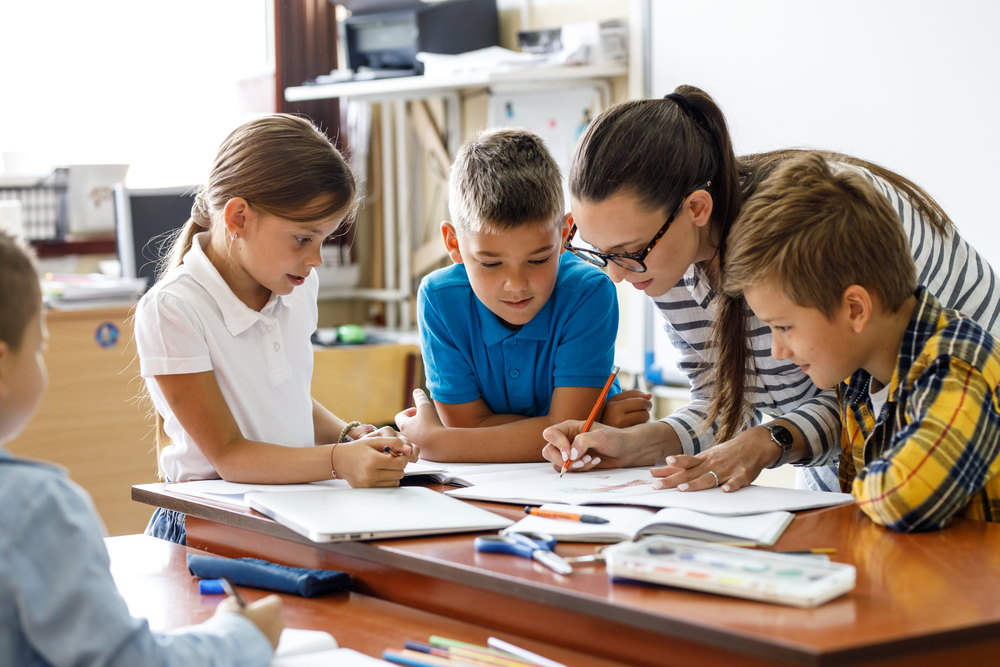QP SAVILLS - Subscribe to our newsletter
SUBSCRIBE TO OUR MARKETING REPORTS
Sign up to our mailing list and property alerts

Education in the Algarve:
A Guide for Relocating Families

When relocating, especially with children, choosing the right school can feel overwhelming. This is even more true when you’re moving to a new country with an unfamiliar education system. Thankfully, the Algarve has long been a welcoming home to expats, and as a result, the region offers a wide selection of international and English-speaking schools.
Whether your child is in the middle of crucial exam years or just beginning their academic journey, there are educational options in the Algarve to suit every family. For teenagers, international schools help smooth the transition, offering continuity in curriculum and language. For younger children, embracing the Portuguese National Curriculum can be a wonderful opportunity to integrate into the local culture, and young minds are impressively quick to pick up new languages.
In the Algarve, you'll find a variety of public, private, and international schools. Below, we break down the two most common education systems available in the region: the Portuguese National Curriculum and Cambridge International Education.
Education in Portugal is free and compulsory for children aged 6 to 18, encompassing 12 years of schooling across four distinct cycles. Public schools typically require students to live or work nearby, though transfers are possible with valid reasons like a change of address. Private Portuguese schools do not have such location-based restrictions.
1. First Cycle (Grades 1–4)
The first stage of compulsory education is usually led by a single teacher who instructs students in core subjects such as Portuguese, Mathematics, Social Studies, and English. Physical Education and Arts may be taught by specialist teachers. In Grades 3 and 4, the curriculum expands to include broader content areas.
2. Second Cycle (Grades 5–6)
Students begin to experience subject-specific teachers and are introduced to new disciplines like History, Geography, and Science, alongside continued core subjects.
3. Third Cycle (Grades 7–9)
This stage deepens academic learning with the addition of Physics, Chemistry, and a second foreign language. National exams in Portuguese and Mathematics are administered at the end of Grade 9.
4. Fourth Cycle – Secondary Education (Grades 10–12)
Students choose an educational track aligned with their interests or career aspirations. Core subjects include Portuguese, Philosophy, Physical Education, and a foreign language. The three main pathways are:
Secondary school culminates in four national exams (two in Grade 11 and two in Grade 12), which, along with grade averages, are used for university applications. Portugal’s education system is flexible and offers multiple pathways to success.

Cambridge International Education
The Cambridge International Education system, developed by the University of Cambridge, is a globally respected curriculum followed by over 10,000 schools in 160+ countries. It provides an internationally recognised path from early years to pre-university and is especially popular among expat families.
Unlike the Portuguese system’s 12 grades, Cambridge has 13, and it is designed to offer continuity, cultural sensitivity, and academic rigour.
1. Cambridge Primary (Ages 5–11)
Students build foundational skills in English, Mathematics, and Science, while also exploring Humanities, Physical Education, and Personal & Social Development. The aim is to nurture curiosity, communication, and confidence.
2. Cambridge Lower Secondary (Ages 11–14)
This stage continues the development of core skills while introducing more formal academic study in preparation for IGCSEs. Emphasis is placed on analytical thinking and independent learning.
3. Cambridge Upper Secondary (Ages 14–16)
Students prepare for the International General Certificate of Secondary Education (IGCSE), one of the world’s most recognised qualifications. Core subjects include:
Students also choose 3–4 additional subjects aligned with their interests or goals. Assessment methods include written exams, oral presentations, coursework, and practical evaluations.
4. Cambridge Advanced (Ages 16–19)
The final phase involves AS and A Levels, taken over two years. Most students select 3–4 subjects for in-depth study. These qualifications are recognised by top universities globally. Exams take place in June or November, with results released in August and January. Grading for IGCSE ranges from A* to G; A Levels from A* to E.
Whether you opt for the Portuguese National Curriculum to encourage local integration or choose Cambridge International Education for a globally consistent academic journey, the Algarve has excellent options to suit your family’s needs. As more expat families make the Algarve their permanent home, the region’s educational offerings continue to grow, giving you peace of mind as you plan your family’s next chapter.
At QP Savills, many of our team members are parents themselves, with children enrolled in both international and Portuguese schools. If you need advice on choosing the right school for your family, don’t hesitate to reach out! We’re always happy to share our local knowledge and help make your move as smooth as possible.
From vibrant music festivals in Faro and Tavira to seaside celebrations in Albufeira, Oktoberfest in Porches, outdoor adventures in Aljezur and Monchique, and even equestrian excellence in Vilamoura, the Algarve is alive with culture, tradition, and entertainment. Whether you’re after...
QP Savills is proud to announce the promotion of Iain Begg to Sales Director for both Quinta do Lago and Vale do Lobo. With over four years at QP, Iain has demonstrated exceptional leadership, passion for the Algarve, and dedication...